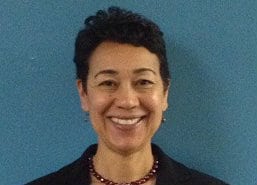This post is the second in a deeper learning series following a recent AYPF trip to Oakland, California.
One question that emerged on our recent Oakland, CA visit to two schools that embrace the elements of (see previous blog post) deeper learning is how does a state or district assess such learning? At both schools, students were gaining skills that were preparing them for life after high school; they were graduating; and they were going to college. We questioned whether the current accountability system been set up to acknowledge that success and encourage interventions to help all schools foster deeper learning to meet those goals? One thing was clear; a one-dimensional accountability system, built around test scores, is not conducive to deeper learning practices in the classroom. Deeper learning requires a more nuanced approach that makes use of a range of indicators and for a variety of purposes.
To that end, California state and district education officials have been thinking differently about how to measure success and what systems can be put in place to help struggling schools through an accountability system that emphasizes college and career readiness. In addition to adopting the Common Core standards and Smarter Balanced assessments, the state is currently revising their school rating system, the Annual Performance Index, to move away from one focused only on test scores, attendance rates, and graduation rates to one that requires 40% of measures to be college and career readiness indicators. These indicators are still up for debate in the California Department of Education and might include measures such as access to higher level coursework and specific college and career pathways (e.g. dual enrollment), promotion rates, or other valid, stable, and reliable measures.
Furthermore, California has taken a gamble on decentralizing funding and accountability systems in an effort to promote district innovation. Through the Local Control Funding Formula, California has simplified how it directs funding to districts. This model shifts away from the state directing multiple categorical funding streams (all with their own unique stipulations) to a simpler model that directs funding to districts based on the demographic profile of their students and gives more flexibility to improve student outcomes. Embedded within this effort has been a focus on an accountability model in which the state provides districts more autonomy through the use of a Local Control Accountability Plan. Districts are required to develop and implement a plan, aligned with spending priorities, that includes annual goals, specific actions, and progress measures for student subgroups across multiple performance indicators. Those indicators include student academic achievement, school climate, student access to a broad curriculum, and parent engagement. Such an accountability plan presents districts great latitude to promote deeper learning practices in classrooms should they choose.
California is not the only state exploring new ways of measuring performance, and numerous states are allowing districts flexibility on what and how to measure student/school progress. The Innovation Lab Network (ILN) at the Council of Chief State School Officers consists of nine states that are reorienting their education systems around student-centered learning principles. While accountability frameworks look very different across the states, many are toying with the idea of district flexibility. One such state is Kentucky, which has implemented a “Districts of Innovation” model. In this model, districts receive flexibility from many (not all) state statutes in an effort to invest in innovative practices and accountability systems. Danville, KY has used this flexibility to develop an accountability system that uses test data and performance-based assessments. Performance-based assessments measure progress on academic standards as well as competencies spelled out in the “Danville Diploma,” which include items such as, “critical thinking across disciplines” and “problem solving.”
These efforts to decentralize accountability systems are still in their infancy; thus, we cannot be sure that they will work. There are many unanswered questions as systems enact these changes, especially regarding equity concerns. However, such experimentation is necessary as it has become infinitely clear that traditional accountability systems have not fostered the types of outcomes we want for all students.
Andrew Valent is a Program Associate with the American Youth Policy Forum






